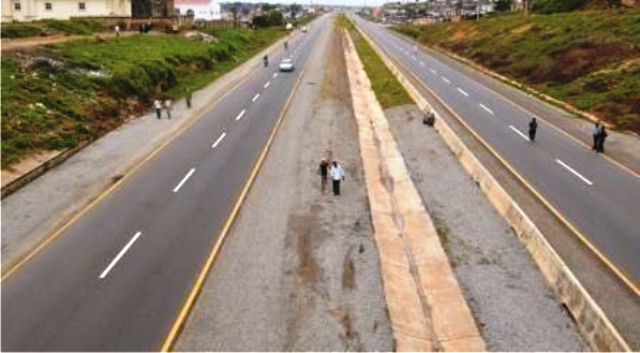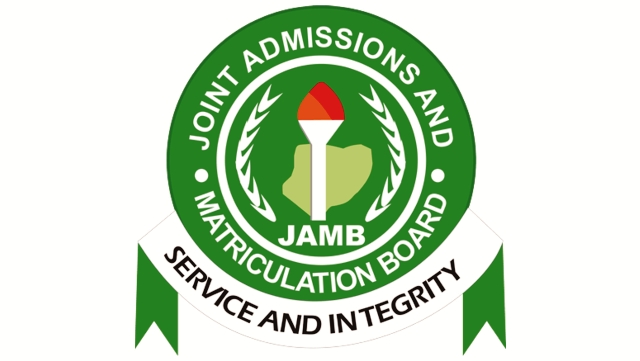Editorial
Trans-Kalabari Road Kidnap: Not Path To Go

The recent abduction of Lubrik Construction Company’s expatriate staff working on Trans-Kalabari Road by unknown miscreants is deplorable and profoundly distasteful. According to reports, three policemen assigned to the employees were viciously exterminated. The sad incident, said to have occurred on Thursday, September 9, along Sama Road, in Asari-Toru Local Government Area of Rivers State, is painfully bewildering. It is absolutely the product of disordered minds to ward off the Kalabari people from benefiting from the generosity of Governor Nyesom Wike.
Unfortunately, such an action could be considered at a moment when the governor is trying harder to ensure that progress takes place in every nook and cranny of the state. Several projects are underway in communities across the state with little or no abduction claims. Why Kalabari land? The Kalabaris are known to be peace-loving, who know how to protect what is theirs. Why did they let this happen to such an extensive project as this, which bears direct impact on their lives?
We denounce the kidnapping and appeal to the police, including all Kalabari leaders, elders and the youth, to go after those answerable for this reprehensible and senseless enterprise. The Kalabaris should remember that they patiently waited for 15 years to witness the actualisation of the road project and must hold on to it pertinaciously. Henceforth, youths from the area should be mobilised to secure all government projects in Kalabari Kingdom, specifically the Trans-Kalabari Road, to preserve it from brigands.
Before the onset of the Wike government, Rivers State had long endured abandoned projects, both at conceptual and advanced stages. The Trans-Kalabari Road had been a neglected project from the time of Dr. Peter Odili when it was awarded for the first time for N9billion. The project was deceased even before it was perfectly visualised.
Former Governor Rotimi Amaechi also signalled a N21billion contract for the same road in December, 2012, and committed to mobilise the contractor to the location by January, 2013. That also didn’t take effect. Yet, this was the same government that used about a whopping N40billion on a white elephant project (the Rivers Monorail) which remains blight for the past six years and deserted even before he left office in May, 2015.
However, in March, 2021, the present government declared a contract for the development of Phase 1 of the project at N13.6billion. On June 24, 2021, Wike eventually flagged off the road with a span of 14 months. The road will link six communities and would be reinforced by an irrevocable standing payment request of N1billion that would be paid to the contractor monthly.
At the initiation of the project, the Chief Executive of the state pleaded with the Kalabaris to give up everything that might imperil the realisation of the initial phase of the venture. The governor spoke at the flag-off of the road at the Degema Waterfront, saying, “Do not allow saboteurs to come and kidnap the contractors and sabotage the road. If I hear that the contractors are being harassed, then it is you”.
Thankfully, the ongoing work has offered an end to the relentless promises that previous governments had made to the people about the execution of the contract. Sadly, the governor’s impassioned appeal was never taken to heart. This untoward incident could prolong the culminating date of the project, thereby, undermining the confidence of the sons and daughters of Kalabari, who look forward to the realisation of the historical undertaking.
While we demand the prompt and outright release of the expatriate, we regard the hard-featured occurrence as a huge challenge to establish reciprocity and tranquillity within all the Kalabari project communities. We strongly advise all adversaries of the Kalabari people and Rivers State to stay clear from all project locations and amenities. Law enforcement and stakeholders of the Kalabari Kingdom should enhance their endeavours to emancipate the expatriate worker.
In 2019, three Lebanese expatriate workers from the Raffoul Nigeria Limited were kidnapped in Andoni. Governor Wike immediately reacted by issuing a 72-hour ultimatum to some traditional rulers and the chairman of Andoni Local Government Council at the time to ensure the release of the engineers working on the Andoni Unity Road or be stripped. The threat paid off, as attempts were stepped up, and the men regained their freedom. We call on the governor to apply a corresponding measure in the Trans-Kalabari Road abduction saga.
Chairmen of the three local government councils of Asari-Toru, Akuku-Toru and Degema have to work collectively to bring off the freedom of the abducted worker and not stick around, expecting the governor to prompt them to act. They need to take steps to protect contractors and workers labouring on projects in their communities. As chief executives and security officers of their respective councils, they must make certain that contractors are not seized under their watch.
Contractors and workers at construction sites must rely less on the government to assure their security. They need to discover ways to secure themselves against delinquents and portentous gangsters. The first step is to broach a security scheme that will provide a policy for an emergency and ensure that all their workers realise how to react and whom to call. Installing surveillance cameras can help monitor the site as a whole and protect lives and equipment.
Wike has always prognosticated a proclivity to move further projects to Kalabariland. But, the activities of kidnappers in the area can dissuade him. The Kalabari people should see themselves too sophisticated to tolerate brigandage in their midst. Hence, they must close ranks to bring an end to the actions of miscreants who aim to see that the development of the area is nixed. Given that the criminals did not emerge from the sky, they have to be detected.
Editorial
Benue Killings: Beyond Tinubu’s Visit

The recent massacre in Yelewata, Benue State, ranks among Nigeria’s deadliest attacks of
2025. While official figures put the death toll at 59, media reports and Amnesty International estimate between 100 and 200 fatalities. This atrocity extends a decade-long pattern of violence in Nigeria’s Middle Belt, where Beacon Security data records 1,043 deaths in Benue alone between May 2023 and May 2025.
President Tinubu’s visit on 18 June—four days after the 14 June attack—has drawn sharp criticism for its lateness. This delay echoes a history of inadequate responses, with Human Rights Watch documenting similar inaction in Plateau and Kaduna states since 2013, fuelling a culture of impunity. The attack lasted over two hours without meaningful security intervention, despite claims of swift action.
The violence bore hallmarks of genocide, with survivors recounting systematic house burnings and executions. More than 2.2 million people have been displaced in the region since 2019 due to comparable attacks. Data show Benue’s agricultural output falls by 0.21 per cent in crops and 0.31 per cent in livestock for every 1 per cent rise in violence.
Security forces continue to underperform. No arrests were made following the Easter attacks in April (56 killed) or May’s Gwer West massacre (42 killed). During his visit, Tinubu questioned publicly why no suspects had been detained four days after Yelewata, highlighting entrenched accountability failures.
The roots of the conflict are complex, with climate change pushing northern herders south and 77 per cent of Benue’s population reliant on agriculture. A Tiv community leader described the violence as “calculated land-grabbing” rather than mere clashes, with over 500 deaths recorded since 2019.
Government interventions have largely fallen short. The 2018 federal task force and 2025 Forest Guards initiative failed to curb violence. Tinubu’s newly announced committee of ex-governors and traditional rulers has been met with scepticism given the litany of past unkept promises.
The economic fallout is severe. Benue’s status as Nigeria’s “food basket” is crumbling as farms are destroyed and farmers displaced. This worsens the nation’s food crisis, with hunger surges in 2023-2024 directly linked to farming disruptions caused by insecurity.
Citizens demanding justice have been met with force; protesters faced police tear gas, and the State Assembly conceded total failure in safeguarding lives, admitting that the governor, deputy, and 32 lawmakers had all neglected their constitutional responsibilities.
The massacre has drawn international condemnation. Pope Leo XIV decried the “terrible massacre,” while the UN called for an investigation. The hashtag “200 Nigerians” trended worldwide on X, with many contrasting Nigeria’s slow response to India’s swift action following a plane crash with similar fatalities.
Nigeria’s centralised security system is clearly overwhelmed. A single police force is tasked with covering 36 states and 774 local government areas for a population exceeding 200 million. Between 2021 and 2023 alone, 29,828 killings and 15,404 kidnappings were recorded nationally. Proposals for state police, floated since January 2025, remain stalled.
Other populous nations offer alternative models. Canada’s provincial police, India’s state forces, and Indonesia’s municipal units demonstrate the effectiveness of decentralised policing. Nigeria’s centralised structure creates intelligence and response gaps, worsened by the distance—both physical and bureaucratic—from Abuja to affected communities.
The immediate aftermath is dire: 21 IDP camps in Benue are overwhelmed, and a humanitarian crisis is deepening. The State Assembly declared three days of mourning (18-20 June), but survivors lack sufficient medical aid. Tragically, many of those killed were already displaced by earlier violence.
A lasting solution requires a multi-pronged approach, including targeted security deployment, regulated grazing land, and full enforcement of Benue’s 2017 Anti-Open Grazing Law. The National Economic Council’s failure to prioritise state police in May 2025 represents a missed chance for reform.
Without decisive intervention, trends suggest conditions will worsen. More than 20,000 Nigerians have been killed and 13,000 kidnapped nationwide in 2025 alone. As Governor Hyacinth Alia stressed during Tinubu’s visit, state police may be the only viable path forward. All 36 states have submitted proposals supporting decentralisation—a crucial step towards breaking Nigeria’s vicious cycle of violence.
Editorial
Responding To Herders’ Threat In Rivers

Editorial
Democracy Day: So Far…

Nigeria’s return to democratic rule in 1999 marked a watershed moment in the nation’s political history. After enduring nearly 16 years of successive military dictatorships, Nigerians embraced a new era of civil governance with the inauguration of President Olusegun Obasanjo on May 29, 1999. Since then, the country has sustained a democratic system for 26 years. But, this democratic journey has been a complex mix of progress and persistent challenges.
The formal recognition of June 12 as Democracy Day in 2018 by former President Muhammadu Buhari acknowledged a long-standing injustice. The annulment of the 1993 presidential election, Nigeria’s freest, betrayed the democratic aspirations of millions. That it took decades to honour this date reflects the nation’s complex relationship with its democratic memory.
One of the most momentous successes of Nigeria’s democracy has been the uninterrupted civilian rule over the last two and a half decades. The country has witnessed seven general elections, with power transferring peacefully among different political parties. This is particularly notable considering that prior to 1999, no civilian government had completed a full term without military intervention. The peaceful transitions in 2007, 2015, and 2023 are testaments to Nigeria’s evolving democratic maturity.
Electoral participation, while uneven, has also reflected a level of democratic engagement. In 2003, voter turnout stood at about 69 per cent, but this figure dropped to approximately 34.75 per cent in 2023, according to the Independent National Electoral Commission (INEC). Although the declining turnout raises concerns, it also highlights the increasing expectations of the electorate, who demand credible and transparent elections.
Another area of progress is the growth of a vibrant and free press. Nigerian media has played a crucial role in holding governments accountable and fostering public discourse. Investigative journalism and civil society activism have exposed corruption and human rights abuses. The rise of social media has further expanded the democratic space, enabling young Nigerians to mobilise and advocate for change, as evidenced by the 2020 #EndSARS protests.
Judicial independence has seen mixed results. On one hand, the judiciary has occasionally demonstrated resilience, such as in landmark rulings that overturned fraudulent elections or curtailed executive excesses. On the other hand, allegations of political interference and corruption within the judiciary persist, undermining public confidence in the legal system’s impartiality.
Nigeria’s democracy has also facilitated the decentralisation of power through the federal system. State governments now wield some autonomy, allowing for experimentation in governance and service delivery. While this has led to innovative policies in some states, it has also entrenched patronage networks and uneven development across the federation.
Despite these successes, Nigeria’s democratic journey faces formidable problems. Electoral integrity remains a critical concern. Reports from election observers, including those from the European Union and ECOWAS, frequently highlight issues such as vote-buying, ballot box snatching, and violence. The introduction of the Bimodal Voter Accreditation System (BVAS) and electronic transmission of results in 2023 elections showed promise, but technical glitches and alleged manipulations dampened public trust.
Corruption continues to be a pervasive issue. Nigeria ranks 145th out of 180 countries on Transparency International’s 2023 Corruption Perceptions Index, with a score of 25/100. Democratic institutions meant to check graft—such as anti-corruption agencies and the legislature—often struggle due to political interference and weak enforcement mechanisms.
Security challenges have also strained Nigeria’s democracy. Insurgency in the North East, banditry in the North West, separatist agitations in the South East, and herder-farmer conflicts across the Middle Belt have collectively resulted in thousands of deaths and displacements. According to the Global Terrorism Index 2024, Nigeria ranks as the eighth most impacted country by terrorism. The government’s difficulty in ensuring safety erodes public confidence in the state’s capacity and legitimacy.
The economy poses another critical remonstrance. Nigeria’s Gross Domestic Product (GDP) per capita stands at approximately $2,400 as of 2024, with over 40 per cent of the population living below the national poverty line. High unemployment and inflation have fueled discontent and disillusionment with democratic governance, especially among youth. Without addressing economic grievances, the democratic dividend will remain elusive for many Nigerians.
Ethnic and religious divisions further complicate Nigeria’s democratic consolidation. Politicians often exploit identity politics for electoral gains, exacerbating social tensions. Although federal character principles aim to promote inclusiveness, they have also sometimes fostered a quota mentality rather than merit-based appointments.
Gender representation remains inadequate in Nigeria’s democratic institutions. Women occupy less than 10 per cent of seats in the National Assembly, one of the lowest rates globally. Efforts to pass gender parity bills have faced stiff resistance, highlighting deep-seated cultural and institutional barriers to female political participation.
Civil liberties, while constitutionally guaranteed, are under threat. Crackdowns on protesters, restrictions on press freedom, and surveillance of activists reveal an authoritarian streak within the democratic framework. The controversial Twitter ban in 2021 exemplified the country’s willingness to curb digital freedoms, prompting domestic and international criticism.
The political crisis in Rivers State embodies broader democratic struggles. Attempts to control the state through undemocratic means expose weaknesses in federal institutions and the rule of law. Immediate restoration of democratic governance in Rivers State is vital to preserving Nigeria’s democratic integrity and institutional credibility.
Local governments remain under the control of state governors, depriving citizens of grassroots democracy. Last year’s Supreme Court judgment on local government autonomy is promising, but state-level resistance threatens its implementation. Genuine autonomy would bring governance closer to the people and foster democratic innovation.
As we mark Democracy Day, we must honour the sacrifices of Chief M.K.O. Abiola, Kudirat Abiola, Femi Falana, Chief Gani Fawehinmi, Pa Alfred Rewane, President Bola Tinubu, and countless others, who fought for Nigeria’s freedom. As democracy in Nigeria continues to evolve after 26 years, this day should inspire action toward its renewal. With despotism and state failure as real threats, both citizens and leaders must take responsibility—citizens by demanding more, and leaders by delivering. Excuses are no longer acceptable.
-
Politics1 day ago
Alleged Money Laundering: Fayose Has No Case To Answer, Court Tells EFCC
-

 Politics1 day ago
Politics1 day agoAtiku Quits PDP, Says Decision Heartbreaking
-
Rivers1 day ago
CDS Urges Communities To Protect Pipelines
-
Politics2 days ago
Bayelsa APC Hails Late Buhari As Change Agent In Nigerian Politics
-

 News1 day ago
News1 day agoShettima, Atiku, Obi Attend Buhari’s Fidau Prayer In Daura
-

 News1 day ago
News1 day agoJAMB Uncovers 9,469 Fake Admissions In 20 Tertiary Institutions
-

 News1 day ago
News1 day agoNAF Disowns Recruitment Adverts, Says It’s Fake
-
Nation2 days ago
Alumni, Others Launch Campus Care Initiative In Port Harcourt

